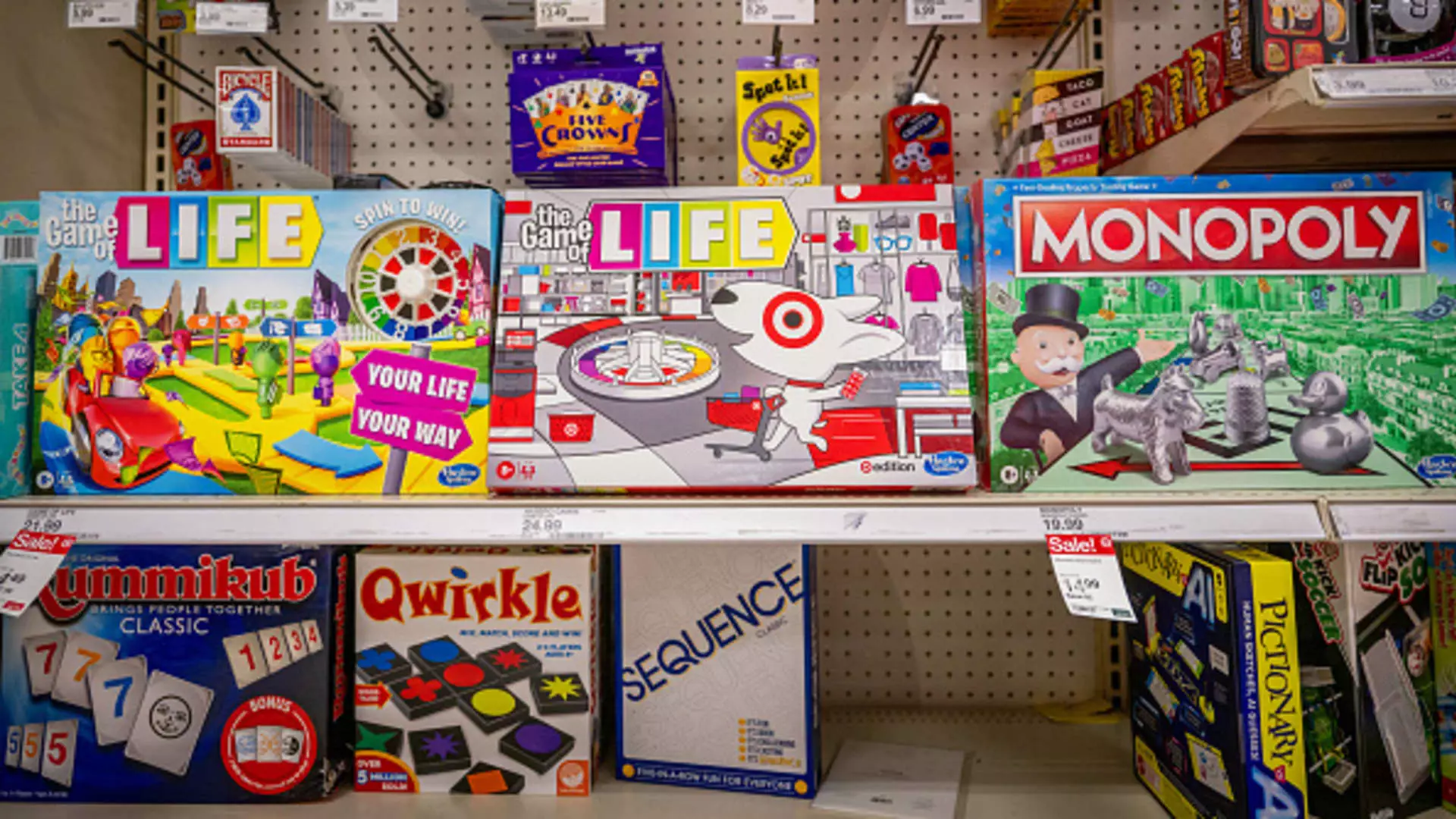In an era where political decisions resonate with tangible consequences for everyday consumers, Hasbro stands as a sobering case study. The toy industry powerhouse is grappling with the ramifications of President Donald Trump’s punitive 145% tariff on imports from China, a move that experts predict could unfurl a massive $300 million dent in the company’s fiscal health. While Hasbro recently posted better-than-expected earnings, the bright numbers serve more as a flicker of hope against a looming storm, one conjured by tariffs that could cripple an entire sector reliant on international supply chains.
Gina Goetter, Hasbro’s CFO, articulated a clarification of this precarious balancing act during the company’s latest earnings call, deftly acknowledging that their financial outlook must wade through the murky waters of trade uncertainty. This vagueness serves as a disheartening reminder of the potentially devastating impact of fiscal policy on an American staple—children’s toys. The forecast displays a fraught range of outcomes where tariffs could mean the difference between mild financial strain or an existential crisis for the company, depending on how aggressively the Trump administration pursues its trade agenda.
Consumer Costs and Corporate Impacts
The reverberations of tariffs extend far beyond Hasbro’s boardrooms; they ripple through American households. CEO Chris Cocks warned about an unavoidable truth: as tariffs elevate operational costs, these burdens will inevitably fall onto the shoulders of consumers in the form of price hikes. This creates a vicious cycle where the very toys designed for fun morph into luxury items that sit on shelves, inaccessible to families already stretched thin by economic pressures.
As companies like Hasbro prepare to navigate this uncertainty, they are forced to juggle financial performance and ethical consumerism in a uniquely modern dilemma. While it’s clear Hasbro is attempting to insulate itself through strategic flexibility and cost-saving measures, what remains unsettling is a deafening silence about the potential job losses that could ensue. With the call for corporate responsibility ringing louder than ever, it feels almost irresponsible for a powerhouse like Hasbro not to directly address the toll on American workers as they consider shifting production or raising prices.
Shifting Manufacturing Landscapes
Hasbro’s global strategy entails exploring manufacturing options beyond China, but this transformation does not come without its complications. Cocks highlighted the company’s willingness to pivot its supply chain to locations such as Turkey for certain products. However, he also candidly admitted the steep costs associated with domestic production. Herein lies one of the more jarring contradictions of our globalized economy: while companies can muse about freedom of choice regarding geographical sourcing, the bright promise of such flexibility is dampened by reality—the financial implications often stifle the very innovation and learning that businesses yearn for.
Many products are easier to shift than others, particularly those, like board games, which can be produced domestically. But when it comes to electronic toys requiring high-tech components sourced, in many cases, from China, the dilemma veers towards a dead end. The question looms large: can U.S. manufacturing ever compete with China’s specialized capabilities that have developed over decades? The challenges are not merely logistical; they cut deep into the fabric of the economy, raising concerns about sustainability in a market where businesses are perpetually at the mercy of shifting trade policies.
A Fragile Future: The Cost of Uncertainty
In this turbulent environment, Hasbro’s commitment to its $1 billion savings plan reflects a desperate, albeit strategic, response to counteract tariff-induced pressure. Yet the company is firmly aware that these measures can’t halt the impending increase in toy prices. This tension echoes through the industry as Hasbro aims to reassure fans and families amid actions that may alienate them with rising costs for products they cherish.
In striving to balance offense with defense, it appears that Hasbro is not alone in this precarious dance. Companies across America are echoing similar sentiments, maneuvering through unprecedented challenges in a trade war that seems to offer no clear end in sight. It’s not just about corporate profits; it’s about the future of a culture built on play, creativity, and joy—elements now burdened by the weight of tariffs and trade disputes. As families grapple with financial realities and the erosion of accessible recreational options, the stakes continue to rise, making this issue a deeply concerning matter that transcends mere corporate earnings reports.

